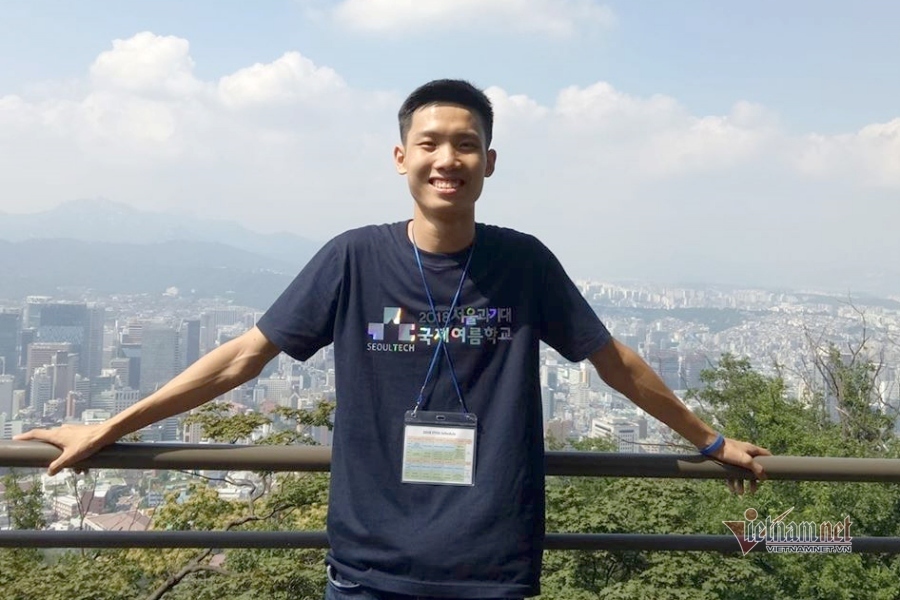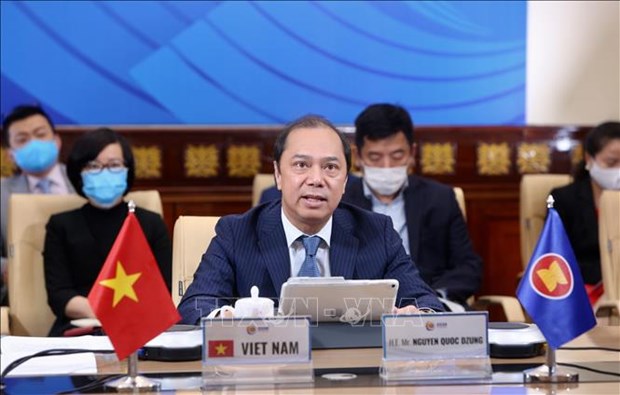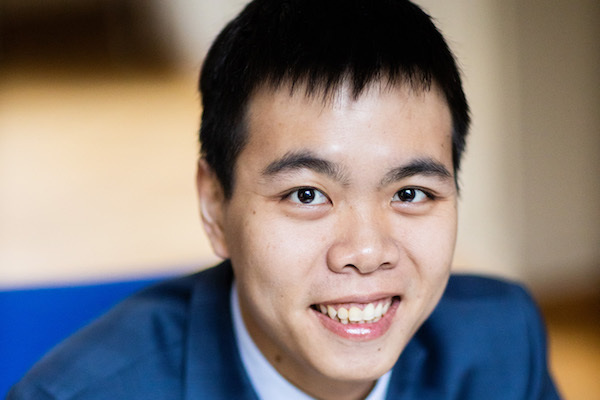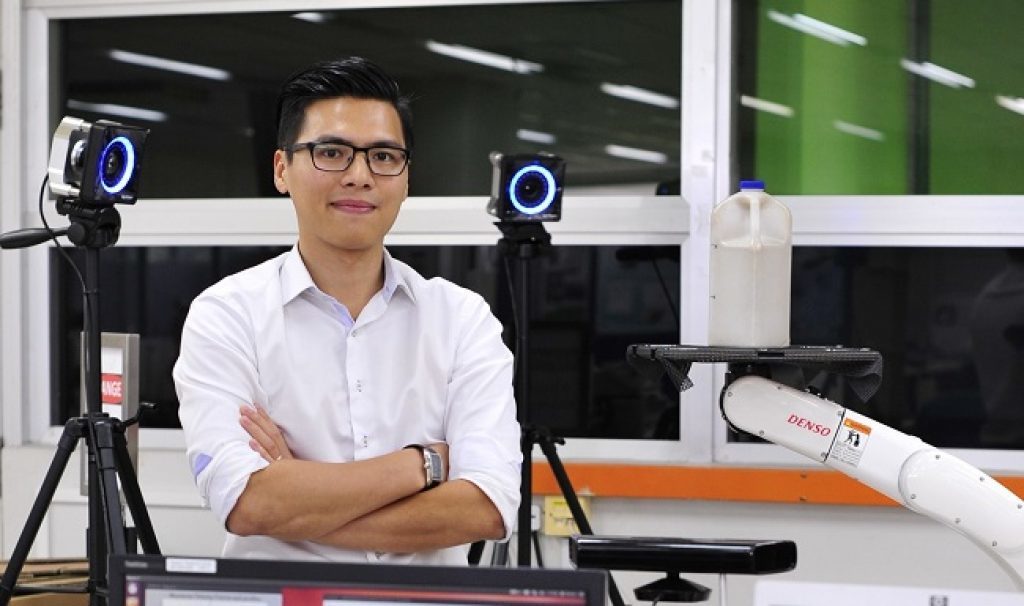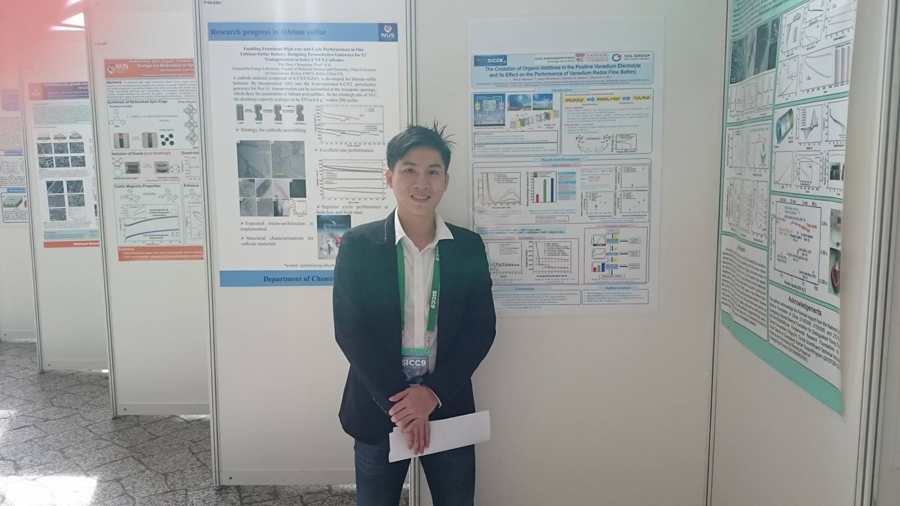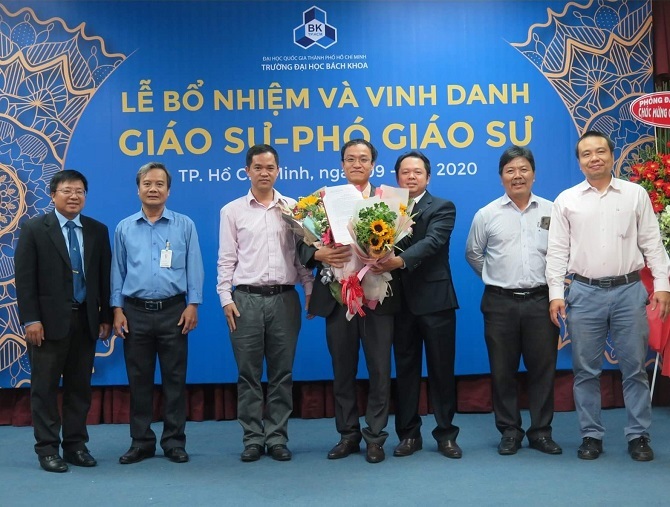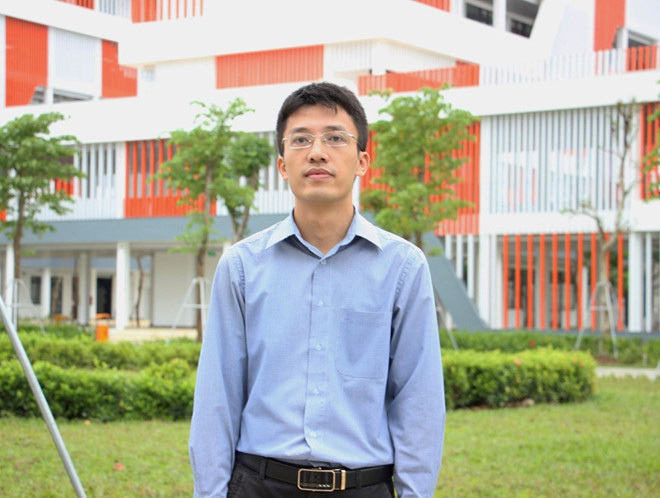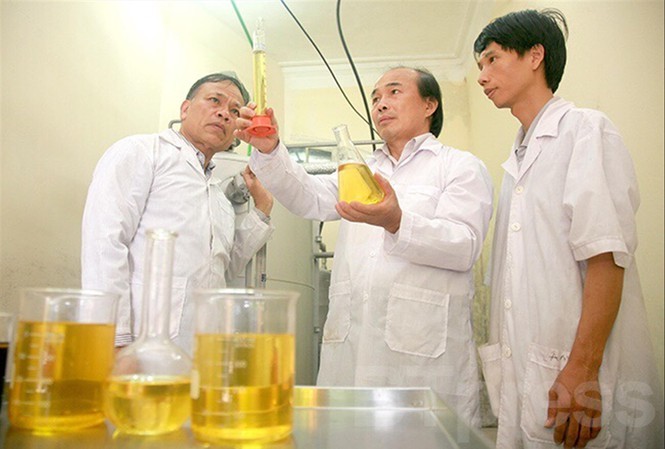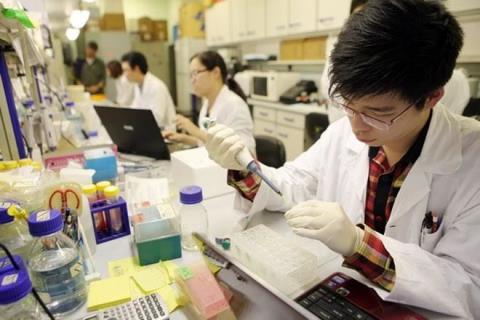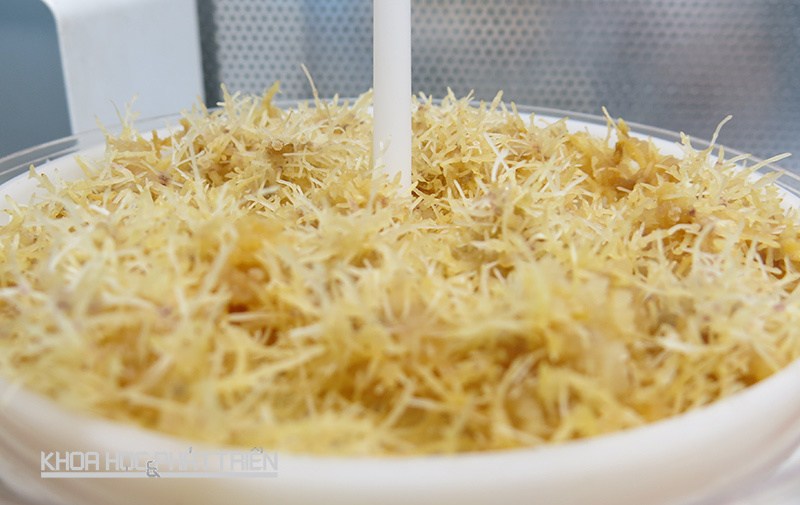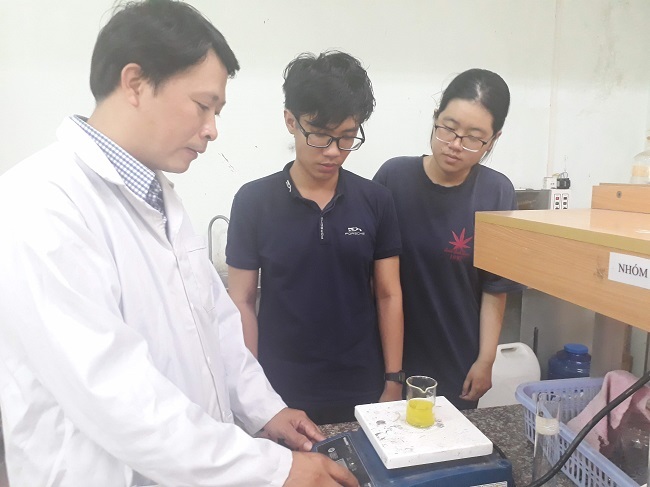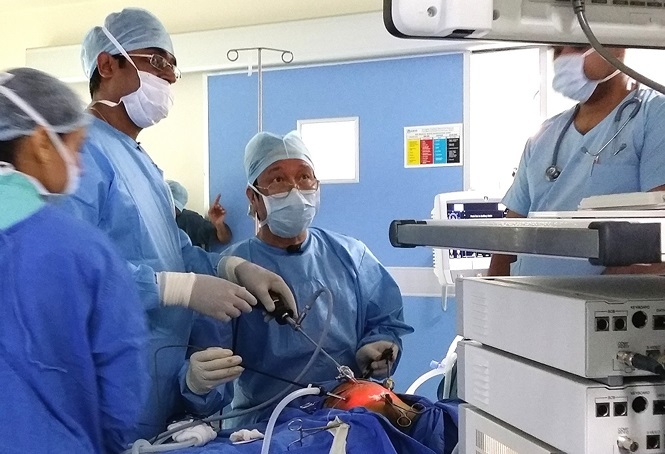- © Copyright of Vietnamnet Global.
- Tel: 024 3772 7988 Fax: (024) 37722734
- Email: [email protected]
scientific research
Update news scientific research
VN chemistry major is main author of article in international publication
 Nguyen Ngoc Trung from the Chemistry Faculty of the Hanoi University of Natural Sciences is the main author of an internationally published article on new material that can absorb antibiotics in medical wastewater.
Nguyen Ngoc Trung from the Chemistry Faculty of the Hanoi University of Natural Sciences is the main author of an internationally published article on new material that can absorb antibiotics in medical wastewater.
National foundation funds postdoctoral study
 The new investments by the Ministry of Science and Technology (MST) through the postdoctoral study funding program is expected to improve research capabilities and the academic environment.
The new investments by the Ministry of Science and Technology (MST) through the postdoctoral study funding program is expected to improve research capabilities and the academic environment.
ASEAN, US enhance cooperation in COVID-19 fight
A teleconference of senior officials of ASEAN and the US was held on April 1 to promote coordination between the two sides in coping with the COVID-19 pandemic and public health challenges.
Vietnamese lecturer publishes research on Covid-19 from quarantine area
 Returning from Germany amid COVID-19 outbreak, Huynh Luu Duc Toan was placed in quarantine at the Khanh Hoa Military School. During that time, he published research about the epidemic in a prestigious science journal.
Returning from Germany amid COVID-19 outbreak, Huynh Luu Duc Toan was placed in quarantine at the Khanh Hoa Military School. During that time, he published research about the epidemic in a prestigious science journal.
Vietnamese scientist in South Korea sets up start-up to create robots
 Based on research with a high level of applicability, Dr Pham Quang Cuong of Nanyang Technology University, set up Eureka Robotics, a startup specializing in providing robots to large corporations.
Based on research with a high level of applicability, Dr Pham Quang Cuong of Nanyang Technology University, set up Eureka Robotics, a startup specializing in providing robots to large corporations.
VN doctor carries out research on ‘technology of the future’
 Nguyen Duy Tam’s research is mostly in the fields of energy storage and conversion materials, materials that catalyze electrochemical reactions and nanostructured materials.
Nguyen Duy Tam’s research is mostly in the fields of energy storage and conversion materials, materials that catalyze electrochemical reactions and nanostructured materials.
Young associate professor invents unmanned aerial vehicle
 Born in 1983, Vu Ngoc Anh, a lecturer and researcher, is one of a few young individuals granted the title of associate professor in 2019.
Born in 1983, Vu Ngoc Anh, a lecturer and researcher, is one of a few young individuals granted the title of associate professor in 2019.
Vietnamese scientist uses food fibers to prevent bowel cancer
 At the age of 30, Dr Tran Van Hung turned down a job opportunity in Japan and returned to Vietnam to work. He is the author of 16 SCI/SCIE articles published in Ranking Q1 international journals.
At the age of 30, Dr Tran Van Hung turned down a job opportunity in Japan and returned to Vietnam to work. He is the author of 16 SCI/SCIE articles published in Ranking Q1 international journals.
Vietnamese 8X generation listed among the world’s top scientists
 Young Vietnamese scientists born in the 1980s have found their names on the list of the world’s 106,369 leading scientists for the number of scientific citations and scientific quantitative indicators, according to Scopus Database.
Young Vietnamese scientists born in the 1980s have found their names on the list of the world’s 106,369 leading scientists for the number of scientific citations and scientific quantitative indicators, according to Scopus Database.
Vietnamese teachers win international acclaim in 2019
 The world last year recognized great achievements by many Vietnamese teachers who live in Vietnam or other countries.
The world last year recognized great achievements by many Vietnamese teachers who live in Vietnam or other countries.
Doctor committed to treat water in rural areas
 Dr Tran Nguyen Hai, 35, from Duy Tan University, is a member of the editorial board of 12 prestigious international science journals.
Dr Tran Nguyen Hai, 35, from Duy Tan University, is a member of the editorial board of 12 prestigious international science journals.
Research universities in Vietnam? It’s easier said than done
 This is the first time that research universities have been mentioned in the revised Higher Education Law and the decree guiding the implementation of the law.
This is the first time that research universities have been mentioned in the revised Higher Education Law and the decree guiding the implementation of the law.
Vietnamese scientists develop new uses for bee venom
 This is the first time a study on anti-inflammatory and analgesic effects of bee venom (apis mellifera) on experimental animals has been carried out in Vietnam.
This is the first time a study on anti-inflammatory and analgesic effects of bee venom (apis mellifera) on experimental animals has been carried out in Vietnam.
3,000 Vietnamese scientists produced only 20 research works in 2019
 The number of scientists working at research institutes is high, but the volume of research work is modest.
The number of scientists working at research institutes is high, but the volume of research work is modest.
Universities lead in scientific research capability in Vietnam
 The agencies with the highest numbers of scientific research works are universities operating under the mode of autonomy and private universities, data from the Web of Science/Publons shows.
The agencies with the highest numbers of scientific research works are universities operating under the mode of autonomy and private universities, data from the Web of Science/Publons shows.
Vietnamese professor wins many international science awards
 After 10 years of pursuing scientific research, Prof Duong Quang Trung, 40, is highly respected internationally for his impressive achievements.
After 10 years of pursuing scientific research, Prof Duong Quang Trung, 40, is highly respected internationally for his impressive achievements.
University lab build brands with internationally published articles
 The physics/chemical laboratory of the HCM City University of Natural Resources and the Environment, established in 2011, is the start of many students' research paths.
The physics/chemical laboratory of the HCM City University of Natural Resources and the Environment, established in 2011, is the start of many students' research paths.
Vietnamese can do scientific research at international level: expert
 Prof Nguyen Thanh Liem, head of Vinmec Research Institute of Stem Cell and Gene Technology and one of top 100 Asian scientists 2019, says that Vietnamese are quite capable of carrying out scientific research at the international level.
Prof Nguyen Thanh Liem, head of Vinmec Research Institute of Stem Cell and Gene Technology and one of top 100 Asian scientists 2019, says that Vietnamese are quite capable of carrying out scientific research at the international level.
Vietnamese researcher's thesis published in ISI journal
 Canada's animal science journal has published a study on three indigenous Vietnamese chicken varieties by Do Quang Son from the Vietnam Agriculture Academy.
Canada's animal science journal has published a study on three indigenous Vietnamese chicken varieties by Do Quang Son from the Vietnam Agriculture Academy.
Students study, earn money at labs
 Working in laboratories not only allows students to translate knowledge into practice, but also helps them earn money to cover their study costs.
Working in laboratories not only allows students to translate knowledge into practice, but also helps them earn money to cover their study costs.
